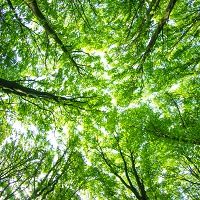News
Article
All Doses of Birch Pollen Allergoids Shown to be Safe for Allergic Rhinoconjunctivitis
Author(s):
This represented the first in human research focused on assessing the best dosing regimen of mannan-conjugated birch pollen allergoids for those with birch pollen–induced allergic rhinoconjunctivitis.

All annan-conjugated birth pollen allergoid doses may be viewed as safe for those with birch pollen-induced allergic rhinoconjunctivitis, according to recent findings, though further research is necessary.1
This study was conducted to expand upon existing knowledge of allergen immunotherapy (AIT), which is the only known treatment that is efficacious for the redirection of individuals’ allergic responses and eventual improvement.2 The investigators note that birch pollen is known to be one of the principal allergic asthma and rhinoconjunctivitis causes in several continents.3
This research was led by Ralph Mösges, from the Faculty of Medicine at the University of Cologne’s Institute of Medical Statistics and Computational Biology in Cologne, Germany. Mosges sought to assess the optimal dose of mannan-conjugated birch pollen allergoids used in short-course allergic rhinoconjunctivitis treatment, in cases where the condition has been induced by such pollens.
“This first in human study aimed at identifying the optimal dose of mannan-conjugated birch pollen allergoids (T502) regarding safety, tolerability and clinical and immunological benefit in patients with birch pollen–induced allergic rhinoconjunctivitis,” Mösges and colleagues wrote.
Background and Findings
The investigators used a randomized, prospective, double-blind, and placebo-controlled study design, and the study was referred to as a dose-finding study. They used 246 total adult subjects that had birch pollen allergies to take part in their dose-finding investigation.
The dose-discovery research was multicenter and conducted in Germany, with the subjects having a total of 9 scheduled meetings, which included a first screening interaction, 5 treatment meeting prior to the birch pollen season, a visit for follow-up treatment, a single visit at the peak of the birch pollen season in 2020, and a last meeting following the pollen season’s end.
Over the course of their 5 pre-seasonal interactions, the study subjects were given by the investigators either 0.5 mL of a placebo or several types of concentrations (1000, 3000, or 10,000 mTU/mL) of the mannan-conjugated birch pollen allergoids being assessed in the study.
The research team looked at the incidence of allergic rhinoconjunctivitis’ resulting symptoms and the use of anti-allergic medications during the peak of the 2020 birch pollen’s main season. Additionally, the team included an examination of the tolerability, immunological, and safety elements.
Specifically, as their secondary efficacy endpoints, the team conducted immunogenicity assessments which were in serum of subjects at V1, V7 and V9 or early termination meetings. They assessed Bet v 1 specific IgE, IgG4, and IgG levels of the study participants.
The investigators’ administration of their highest dose of pollen allergoids was shown to have led to a diminished combined symptom and medication score for the subjects at the time of the peak season for birch pollen. This lowering of the scores was shown to have a median of 24.7% versus those in the placebo arm.
Additionally, the research team found that the production of Bet v 1-specific IgG4 was shown to have exhibited a substantial dose-dependent increase. They found a 3.6- and 4.5-fold rise among both the 3000 and 10,000 mTU/mL arms of the study, respectively.
Interestingly, the team also reported a major reduction of up to -70% in the observed ratio of Bet v 1-specific IgE to IgG4. They added that they found no reports of fatalities or reports of serious adverse events.
Additionally, the research team found no instances in which there was a necessary use of adrenaline for the subjects. In total, the investigators reported 4 systemic reactions, comprising 2 of grade I and 2 of grade II severity.
“Since patients treated with 10,000 mTU/mL T502 showed the strongest results regarding reduction of CSMS during the peak birch pollen season, improvement in NPT, increases in specific IgG4 and blocking antibodies, this dose qualifies for further investigation,” they wrote.
References
- Mösges, R, Zeyen, C, Raskopf, E, et al. A randomized, double-blind, placebo-controlled trial with mannan-conjugated birch pollen allergoids. Allergy. 2023; 00: 1-11. doi:10.1111/all.15910.
- Larsen JN, Broge L, Jacobi H. Allergy immunotherapy: the future of allergy treatment. Drug Discov Today. 2016; 21: 26-37. doi:10.1016/j.drudis.2015.07.010
- D'Amato G, Cecchi L, Bonini S, et al. Allergenic pollen and pollen allergy in Europe. Allergy. 2007; 62: 976-990. doi:10.1111/j.1398-9995.2007.01393.x.





